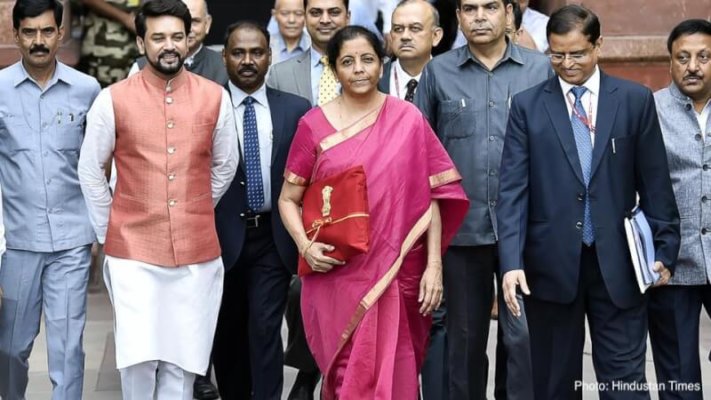India is among the top startup ecosystems in the world with home to 50,000+ startups and 3,500+ funded startups growing at a rapid pace at 30 per cent. While the future outlook of the Indian startup ecosystem is definitely promising, further accelerated growth can happen only if the government introduces more startup-friendly policies, other than the existing support under ‘Startup India’.
With Budget 2020 less than two months away, the startup ecosystem is hoping to get a major boost with respect to the following measures:
- Improve ease of doing business for startups.
- Attract domestic and foreign investors.
- Increase working capital flow for startups.
iSPIRT has made a 13-point recommendation list for Budget 2020 with respect to the above-mentioned measures:
1. Remove the TDS payment for DPIT registered Startups
Currently, payments to DPIT registered startups are subject to Tax Deduction at Source (TDS) of 10% under section 194J. It takes at least 1-2 years for startups to get refunds after filing of their returns, which blocks their working capital for that time period.
2. Harmonise the Tax Rate and Holding Period between Listed and Unlisted Securities of Startups
The higher holding period and higher tax rate disincentivise investments into startups from Indian sources. Globally, no such differentiation exists.
This recommendation seeks:
- Reduction of the holding period for unlisted securities to 12 months from the current 24 months.
- Levy of a lower tax rate of 10% on the sale of unlisted securities.
- Removal of the “superrich” surcharge of 25%/37% on the sale of unlisted securities.
3. Change in the taxation of ESOPs for Startups:
The existing definition of Rule 3(8)(iii) of the Income Tax Rules, 1962 does not take into consideration the discrepancies in the determination of ‘Fair Market Value’.
The new recommendation seeks amendment to this rule as as per Rule 11UA(1)(c)(b), provided such fair market value shall not be less than the exercise price.”
4. Clarification on the February 19th, 2019 DPIIT circular on “Angel Tax” with regard to Form 2
This circular states that the exemption lapses in the case the startup has or will invest or conduct any of the activities below for a period of 7 years after investment, inter alia:
- Make capital contributions to other entities,
- Make investments in shares and securities,
- Give loans and advances (except in the case of lending startups
The recommendation seeks an amendment to this notification
- Extend the “business model” test applicable to all the other investments mentioned in Form 2 to all points mentioned therein
- Allow Startups to make Loans and Advances in the ordinary course of business provided that the PAN of the recipient is reported
- Allow startups to invest into shares and securities and make capital contributions provided that such downstream investments do not make further investments into any of the other points listed in Form 2
5. Allow for AIF expenses to be capitalised/passed-through
Expenses of an AIF can add up to up to 25%-30% of its corpus during the lifetime of a scheme, making a large chunk of the fund is a “dead-loss”.
The new recommendation seeks AIF expenses to be capitalised as the Cost of Acquisition or allowed to be set off against the income.
6. Classification of securities held by AIFs as Capital Assets by amending section 2(14) of the Income Tax Act, 1961.
There is still friction between the startups, investors and income tax department with respect to taxation of short-term gain from the sale of securities under AIF.
The new recommendation seeks an amendment to Section 2(14) as “any securities held by a Foreign Institutional Investor or AIF which has invested in such securities in accordance with the regulations made under the SEBI.
7. Pass-Through Status for CAT III AIFs
Unlike CAT I and CAT II AIFs, CAT III AIFs do not have pass-through tax status, rendering their income to be taxed at the maximum marginal rate for their income earned, regardless of the tax status of the underlying investor.
The new recommendation seeks an amendment to Section 115UB and Section 10(23FBA) by including CAT III AIFs.
8. Allow Universities and Public Trusts to invest in AIFs
Currently, investments are allowed in SEBI registered Mutual Funds or notified Mutual Funds set up by a public sector bank or a public sector financial institution.
The new recommendation seeks an amendment to this section to include ‘Units of an Alternative Investment Fund registered with the Securities and Exchange Board of India”
9. Notify all SEBI registered AIFs as “long-term specified assets” under section 54EE
Section 54EE was introduced on April 1, 2016, to give capital gains exemption of Rs 50 lakhs for any gains invested into “long-term specified assets”, defined as “a unit or units, issued before the 1st day of April 2019, of such fund as may be notified by the Central Government in this behalf”
So far, the Central Government hasn’t notified any such funds, so no tax-payer has been able to avail of this benefit.
The new recommendation seeks issuance of a Central Government notification to notify all SEBI registered AIFs as “long-term specified assets” under section 54EE and announce measures to extend this to April 1, 2025.
10. Time-bound response from the Inter-Ministerial Board (IMB) and allowing all startups to reapply
The IMB has not been effective yet in timely responses to startups.
The new recommendation proposes DPIIT to issue a notification stating that:
- IMB will respond in 60 days from the date of submission by the Startup.
- Startups who were denied IMB recognition prior to February 19th, 2019 can re-apply for IMB recognition once again under the new criteria.
11. Exempt Software product Companies from Softex
Software product exporters are required to file SOftex form to report the inward remittance on export invoices in convertible foreign currency. However, Software products have a publicly listed MRP/List price and hence do not require any valuation.
The new recommendation seeks RBI to exempt software product companies from filing Softex and create a separate category of Purpose code for disposal of inward remittances by authorised dealers.
12. Creation of aHSN code for Software Product Startups
Under the GST regime, all IT Software has been treated as “Service”. Yet, there exists HSN codes and SAC codes both.
It is recommended that an HS code classification for specific categories can be issued using the last 2 digits (first 6 Digits being defined under international system).
13. R&D Credits for Software Product Companies
As startups and young software product companies don’t have taxable profits, they are unable to take advantage of current R&D tax benefits that involve setting off R&D expenses against taxable profits. To overcome this limitation, they should be allowed a deferred tax credit for up to 7 years after the R&D investment.
You can read about Budget Representation 2020 in detail here.



